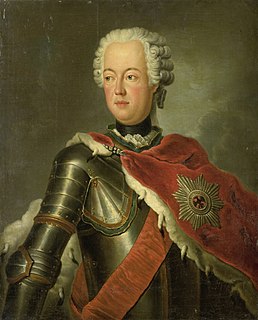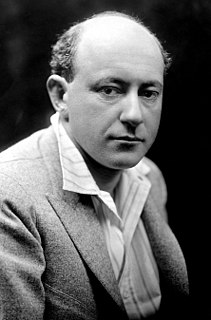A Quote by Prince Augustus William of Prussia
The most melancholy thing about human nature, is, that a man may guide others into the path of salvation, without walking in it himself; that he may be a pilot, and yet a castaway.
Related Quotes
May God guide you on this path. May you understand that you are blessed children and you have a job to do. May you know in your heart that God belongs to you always, within and without. May your sorrows never touch your tomorrow, may your blessings be for all, may your happiness be shared, and may your smiles give hope to others.
We may live without poetry, music and art; We may live without conscience, and live without heart; We may live without friends; we may live without books; But civilized man cannot live without cooks. . . . He may live without books,-what is knowledge but grieving? He may live without hope,-what is hope but deceiving? He may live without love,-what is passion but pining? But where is the man that can live without dining?
As a man may know about Africa either by going there personally or by reading descriptions written by travelers who have been there, so may he visit the super-physical realms if he will but qualify himself therefor, or he may learn what others who have so qualified themselves report as a result of their investigations.
There are three kinds of nature in man, as Nicetas Stethatos further explains: the carnal man, who wants to live for his own pleasure, even if it harms others; the natural man, who wants to please both himself and others; and the spiritual man, who wants to please only God, even if it harms himself. The first is lower than human nature, the second is normal, the third is above nature; it is life in Christ.
Man has made 32 million laws since THE COMMANDMENTS were handed down to Moses on Mount Sinai more than three thousand years ago, but he has never improved on God's law. THE TEN COMMANDMENTS are the principles by which man may live with God and man may live with man. They are the expressions of the mind of God for His creatures. They are the charter and guide of human liberty, for there can be no liberty without the law.
Nothing is more unjust, however common, than to charge with hypocrisy him that expresses zeal for those virtues which he neglects to practice; since he may be sincerely convinced of the advantages of conquering his passions without having yet obtained the victory as a man may be confident of the advantages of a voyage or a journey, without having courage or industry to undertake it, and may honestly recommend to others those attempts which he neglects himself.






























